VA - Kalevala - A Finnish Progressive Rock Epic (2003/2008)
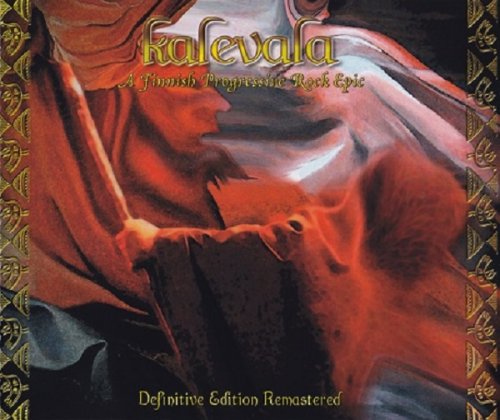
Artist: VA
Title: Kalevala - A Finnish Progressive Rock Epic
Year Of Release: 2003 (2008)
Label: Musea
Genre: Prog Rock
Quality: WAW (image+.cue,log,scans)
Total Time: 4:01:22
Total Size: 2,4 Gb
WebSite: Album Preview
Title: Kalevala - A Finnish Progressive Rock Epic
Year Of Release: 2003 (2008)
Label: Musea
Genre: Prog Rock
Quality: WAW (image+.cue,log,scans)
Total Time: 4:01:22
Total Size: 2,4 Gb
WebSite: Album Preview
In 2003 Colossus made the progressive world a great gift: on a project ideated by its editor Marco Bernard, the leading Finnish magazine about progressive music and MUSEA records released an album narrating the whole Kalevala, the greatest Finnish epic, divided by the patient Bernard in thirty narrative sequences. This masterwork runs throughout three CDs, reaching the unprecedented (at least as far as I know) length of nearly four hours - and the four hours mark is actually surpassed in this re - release - and including no less than thirty prog bands from throughout Europe (plus one and a half bands from the USA). Italy gets the lion's share with no less than thirteen bands, followed as expectable by Finland (six), Sweden and the UK (three each), then France, the USA (as mentioned earlier), Switzerland and Norway. A condition the bands had to fulfil to be included in this project was to use only instruments that were available in the glorious seventies. This allowed some of the bands that were already around back then to dust their Mellotrons and Rhodes organs, and to some of the new realities to get to grips with slightly different techniques and styles, everything with amazingly good results. Of course the cohesion between consecutive tracks can not be perfect, but the common theme and the restrictions in the instruments to use give the whole album a difficult to reach sense of coherence. Opening the album is an appropriately epic track entitled “The Creation/The Sowing" by the great 70 Finnish band Haikara, lead by the genial Vesa Lattunen, who sadly passed away way too soon and to whom this reprint is dedicated. It is a very long track (eleven and a half minutes) displaying all the band’s main characteristics in their unprecedented union of prog, classical music and Finnish folk: different themes alternate and intertwine, taken on by several instruments, with powerful crescendos and milder moments. Haikara are hard to follow, and the ungrateful task is given to their compatriots Overhead, who perform a strong, catchy prog tune (with lyrics in English) with a surprising and outstanding quiet ending lead by a dreamy violin and sweet intertwining vocals. Simon Says, from Sweden, previously to recording this track has released two albums in a very good Canterbury style, very good if not too original, Here they surprisingly abandon such themes to stick to a more folkloristic style; their “Som Floden Flyter” is very close to Nordic folk and, if we have to draw a parallel to a contemporary band, feels closer to Kaipa (not by chance Swedish as well) than to Genesis. Again from Sweden come Sinkadus, bringing us back to the golden years of King Crimson: an instrumental piece not incredibly original but extremely well executed, with their thematic exchanges between instruments and the bonus addition of some Nordic folkloristic feel. Then comes the moment of the first of the thirteen Italian bands, Moongarden. They are clearly inspired by Genesis, but how majestic are the keyboards when they leave their soft background work to give way to powerful openings to follow well written and even better played passages in which electric and acoustic instruments cross each other’s paths! Moongarden are followed by another Italian band, II Castello di Atlante, a band deep in the Italian prog traditions with its resounding keyboards and guitars with very good violin and piano inserts, everything accompanying an outstanding vocal melody that can remind of Banco. Really a jump thirty years back in time. Then, on to the United Kingdom with one of the most interesting prog music realities of the recent years, the Welsh Magenta, led by Rob Reed with the haunting voice of Christina Booth getting closer everyday to Anne Haslam’s. The more modern style Reed’s guitar displays creates a pleasant contrast with his own classic sounding keyboards, making this “Lemminkainen’s Lament" maybe one of the catchiest songs in this whole triple album. Back to Italy with Submarine Silence, again featuring those Cristiano Roversi and David Cremoni who are also playing with Moongarden. Their duets - keyboards and guitars - interestingly touch several different themes and rhythms’ throughout an instrumental with far reminiscences of Camel. The ninth track on this first CD brings us across the Atlantic ocean to make our acquaintance with Metaphor who learnt a lesson from Genesis and here prove to be able to put it in practice in a symphonic prog song with plenty of interesting thematic variations. To close this first (of three) CD here’s Clearlight, the band that I had earlier mentioned as "half from the USA" (I know I have awakened your curiosity). The French keyboard wizard Cyrille Verdoux has now joined forces with the Americans Dan Shapiro, Joseph L. Steiner III and Shaun Guerin (another one who left us too soon) to produce this high quality, incredibly elegant composition also featuring precious vocal melodies courtesy of the class of the aforementioned drummer Shaun Guerin.The second CD is opened by Orchard, from Norway, with an instrumental track in which an important role is played by the flute, giving this composition a certain Jethro Tull feel. Also very good are the guitar lines, making this a very satisfactory song. Greenwall come from Italy, and are lead by Andrea Pavoni accompanied by no less than eleven musicians to deliver “The Wedding", the longest song in this humungous work of art that is the “Kalevala". It is a pleasant mixture of elegant chamber music and a very lyrical, seventies-styled progressive, with a string quintet and Ravoni's piano taking the lions share. Revelation - again from Italy, can’t escape their very strong Genesis background, but manage to mould it in an extremely fine song developing from a romantic introduction to a powerful new-prog with some interesting medieval-sounding moment well positioned. Back to 1 inland for this instrumental by Scarlet Thread, who melt progressive and Nordic folk better than most using mandolin, flute ind violin to counterpoint a good electric guitar, everything with an ever changing tempo. Another highlight in this already exceptional album. Mad Crayon (one more Italian band) present here a song called “The Sound of Memories", very appropriately melancholic and once again rich in intertwining, electro-acoustic melodies with plenty of well placed folk moments that make an already very interesting track even more precious. Directly from the seventies come Museo Rosenbach, one of the historical realities of Italian prog. Their majestic dialogues between guitars and keyboards are really first class, and the moments in which they give way to quieter moments (usually sung parts) keep the level of this much expected song very high. Also epic (and very, very theatrical) are the Mellotron passages. We stay in Italy to meet Leviathan with the pleasant, keyboard-based "Filo di Lama”, a definitely neo-prog song including interesting flute intermissions that reminds closely of the early Marillion. Another historic Italian band are Malibran, who display here all of their usual skills, those that allowed them to become in time probably the Italian band closer to the Canterbury style without losing their Mediterranean roots. Here the vocals are for once the focus of the song, accompanied by the well balanced interaction between all the instruments Malibran got us used to. Very relevant is also a dreamy flute, giving the song a particular depth. Italy also provides the next instalment in this “Kalevala” with “Malvagio per le Stelle”, an outstanding, majestic piece by Sofia Baccini, the vocalist of Presence. Taking charge of every single instrument in the song except for a guitar that anyway is left pretty much on the background, she delivers a haunting song full of feeling and lyrical moments, probably the best way to narrate Kullervo's suicide. The music (heavily lead by the various keyboards) and the overlapping vocals cooperate to make of this one of the highest moments in this “Kalevala” project. Another one who takes charge of everything (in this case except for the drums) is the English Steve McCabe who, with the name of Elegant Simplicity he solected for his project really says it all about this instrumental track that closes the second CD. Oddly for someone who is basically a solo artist, McCabe does not indulge in excesses, but created a very mellow and pleasant song with keyboards and guitars exchanging roles and themes over a very nice Mollolron basis. One more high. The third and last CD in this Kalevala" opens with the hardest to classify moment in the whole project. Qadesh is once again the project of a single artist, the English Willyam-Daevid Harbottle, accompanied by a drummer. Well arranged, this song is a very good display of Harbottle’s vocal versatility accompanied by an odd and sometimes even slightly dissonant basis. Admittedly it is a very odd episode and definitely stands out in the whole album, but its originality and style has to be commended. We are once more back to Italy with Cantina Sociale, with a very good instrumental basis in which all the instrument alternatively take central stage that accompanies an amazing vocal performance by lano Nicolo, ever closer to the greatest and reminding of nonetheless than Demetrio Stratos. The Swedish band Grand Stand brings us back to the better known territory of neo-prog, with a solid guitar performance leading a series of mood changes sometimes reminding of symphonic rock. Germinale, again from Italy, narrate their “La Battaglia per il Sampo” in their habitual “evolutionary rock”, as they like to call their genre. They open with a piece by Sibelius, and follow with a smooth, clever, smart song in which the guitar is particularly elegant, interspersed with very well placed flute interventions. Interesting the choice of reciting rather than singing the lyrics, with two voices playing the two characters of the story. Aardvark open their song with a very folk introduction, with acoustic guitar and a keyboard background accompanying a very nice female voice singing in their native Finnish only to give way to a much stronger sound, in which the guitar stands out with very well executed solos. On to the only Swiss band in this album, Thonk. This instrumental track is very focused on the keyboards, with constant Keith Emerson reminders thanks to Marc Grassi’s style, on a very well structured rhythmic basis to remind of ELP’s kind of symphonic prog. The Finnish quartet Groovector manage to balance perfectly modern and classical music in this “Tuletta”, a fascinating, romantic piece lead alternatively by piano and guitar. The third instrumental track in a row is “Pine” by Whobodies, who tread paths yet unexplored in this work. Their style is extremely close to jazz with some funky moments, and the trombone along with the saxophone are central in the first and last part of this very interesting composition, with a softer and smoother central part full of lyricism. We go to Italy for the last time for this nice song by Randone & Tempore, a cooperation between the vocalist Nicola Randone and - of course - the band Tempore. The dramatic feel of this piece is well rendered by alternating more upbeat passages with very quiet moments, with well played instrumental passages as well as Randone’s precise vocals to conspire tense moments. This wonderful musical marathon is worthily closed by the French Cafeine, a symphonic prog quintet here accompanied by a string quartet to give this extremely good Genesis-styled song a more classical side that adds depth to an already very well built and executed track. It is not easy to find the time to listen to the whole “Kalevala” in one single sitting, but if such time can be found it is well worth spending it deep in Finnish mythology, accompanied by bands from Italy and Finland, from Sweden and France. Homogeneity of course can not be the strongest point of a project of this kind and magnitude, but this adds to the interest and the attractive of this album. It is a great way to discover new bands, and I guarantee that every prog fan will find something they really like. Of course there will also be less interesting moments, but this is also subjective. What is sure is that Colossus and MUSEA produced a milestone in the progressive world, a project of an unsurpassed magnitude and with an incredibly high quality also featuring some very special moments such as one of the very last compositions by the sadly missed Vesa Lattunen of Haikara and Sofia Baccini’s first official solo work. Now Colossus and MUSEA are presenting us with this reissue, one more chance for those who missed the first edition to appreciate and enjoy this masterwork, one more gift to the progressive world, and one more way to remember our “absent friend” Vesa Lattunen.
Tracklist:
* DISC 1 * (81:32)
1. HAIKARA (Finland) - The Creation / The Sowing (11:27)
2. OVERHEAD (Finland) - Wainamoinen and Youkahainen / The Fate of Aino (8:00)
3. SIMON SAYS (Sweden) - Som Floden Flyter (As the river runs) (7:00)
4. SINKADUS (Sweden) - Trubadurens kval (The Minstrel's Cry) (5:36)
5. MOONGARDEN (Italy) - Maiden of the Bow (10:18)
6. IL CASTELLO DI ATLANTE (Italy) - Ilmarinen Forges the Sampo (6:59)
7. MAGENTA (Uk) - Lemminkainen's Lament (6:53)
8. SUBMARINE SILENCE - (Italy) (7:34)
9. METAPHOR (Usa) - Raking the Bones (7:45)
10. CLEARLIGHT (Usa-Fra) - The Boat Builder / Searching For the Lost Word (10:00)
* DISC 2 * (71:00)
1. ORCHARD (Norway) - 3 (7:30)
2. GREENWALL (Italy) - The Wedding (14:27)
3. REVELATION (Italy) - Uninvited Guest (10:00)
4. SCARLET THREAD (Finland) - Pimeästa Pohjolasta (5:01)
5. MAD CRAYON (Italy) - Il Suono Dei Ricordi (The Sound of Memories) (6:19)
6. MUSEO ROSENBACH (Italy) - Fiore di Vendetta (The Flower of Revenge) (6:37)
7. LEVIATHAN (Italy) - Filo di Lama (Edge of a Blade) (10:32)
8. MALIBRAN (Italy)- Strani Colori (Strange Colors) (5:12)
9. SOFIA BACCINI (Italy) - Malvagio Per Le Stelle (Mean because of the stars) (5:25)
10. ELEGANT SIMPLICITY (UK) Ilmarinen's Bride Of Gold (5:02)
* DISC 3 * (76:19)
1. QADESH (Uk) - Ilmarinen's Fruitless Wooing (11:30)
2. CANTINA SOCIALE (Italy) - Kantele (6:00)
3. GRAND STAND (Sweden) - Stormen (Tempest) (7:07)
4. GERMINALE (Italy) - La Battaglia per il Sampo (The Battle for the Sampo) (8:14)
5. AARDVARK (Finland) - Uusi Kantele (New Kantele) (5:57)
6. THONK (Switzerland) - Kapittu 45/46 (Chapter 45/46) (6:37)
7. GROOVECTOR (Finland) - Tuletta (Fireless) (5:29)
8. WHOBODIES (Finland) - Pine (5:41)
9. RANDONE & TEMPORE (Italy) - Runo 49 (9:00)
10. CAFEÏNE (France) - Way is open (11:44)
VA - Tuonen Tytar - A Tribute To Finnish Progressive (2000)
![Steve Kuhn & Karin Krog - Break of Day (2015) [Hi-Res] Steve Kuhn & Karin Krog - Break of Day (2015) [Hi-Res]](https://www.dibpic.com/uploads/posts/2026-02/1770024915_m8pa28e6on0ia_600.jpg)
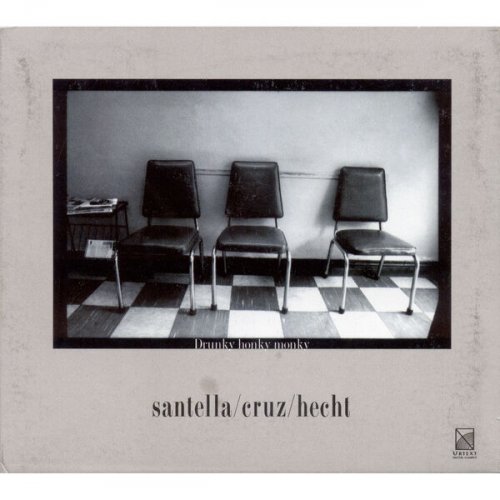

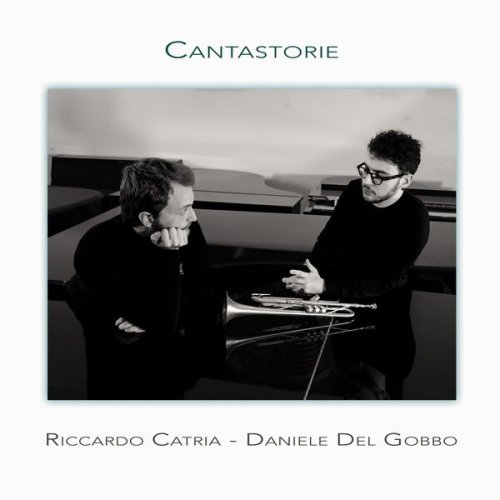
![Klara Cloud & the Vultures - Baroque (2026) [Hi-Res] Klara Cloud & the Vultures - Baroque (2026) [Hi-Res]](https://www.dibpic.com/uploads/posts/2026-01/1769692901_x5lcf3x5ubcfc_600.jpg)
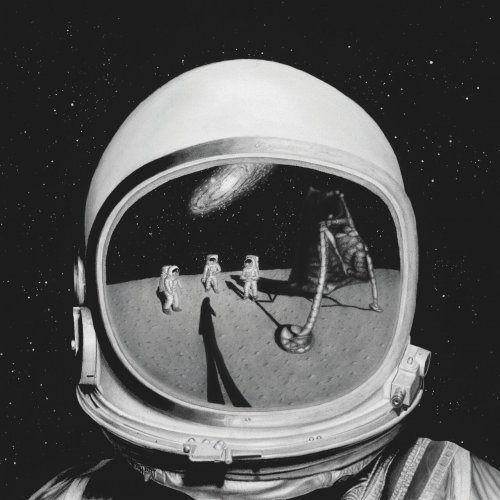
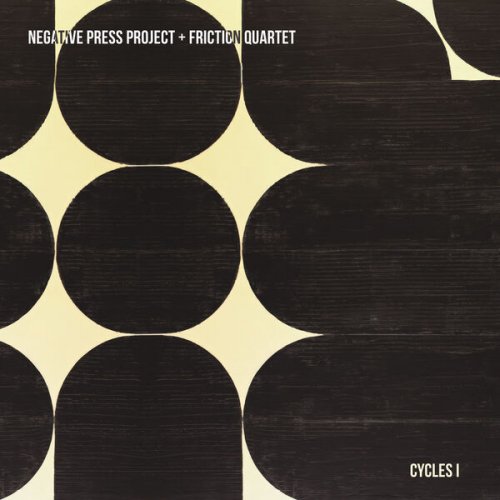
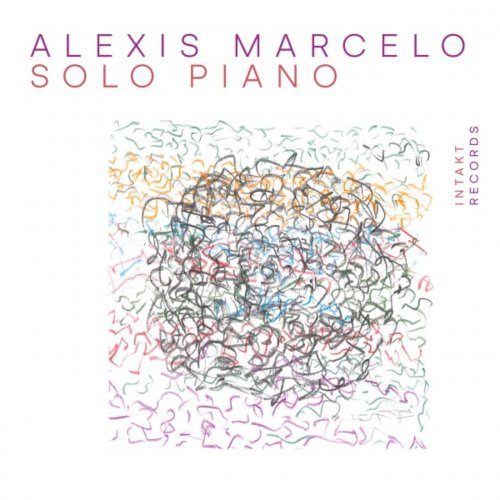
![Neue Grafik - Rachael (2026) [Hi-Res] Neue Grafik - Rachael (2026) [Hi-Res]](https://img.israbox.com/img/2026-01/29/epe0apr8xle4qpoyvu7kaz37u.jpg)